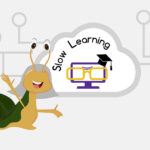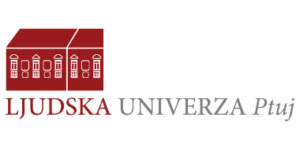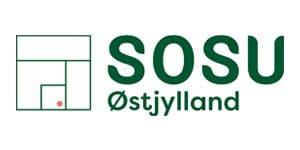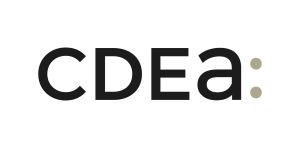General information
| Name of the good practice | University for the 3th period of life, Computing for the elderly |
| Name of the organisation or institution in charge of the project | Public university of Ptuj |
| Address, City | Mestni trg 2, 2250 Ptuj |
| Country | Slovenia |
| 1st project year | 2019 |
| Is the project ongoing? (time alive) | The activities are still ongoing |
| The good practice is to be found at web.address | |
| Website of the organisations | https://www.lu-ptuj.si |
| info@lu-ptuj.si |
Short description of the project, of the method
Computer education for the elderly is organized by the Public University of Ptuj within University for the 3th period of life activities. This type of education has been going on for many years mainly because of two reasons:
- if elderly still want to actively participate in society and have access to information, they need to become computer literate
- elderly themselves are very eager to acquire these kinds of skills.
Therefore the education is mainly about basic computer science: what a computer is, what it is designed for, its components, software, what we can do with it, know how to properly use the keyboard and mice, learning the program Word for Windows, writing, editing, and document storage, image storage, safe internet email usage, creating one’s own e-accounts, antivirus software, cleaning computer (cookies…).
Based on the premise that we can learn and remember only that what we understand, we strive to clarity and so during workshops we explain and demonstrate each single thing in a simple, understandable and easy way, and by leaning on participants’ existing knowledge and understanding. There are many exercises and repetitions and every little progress is always commended and encouraged. Emphasis is placed on a personal, positive and relaxed approach, which is why we adapt the pace of learning to the individual.
General objective
A major challenge for European societies is the gradual aging of the population but we also see it as a great opportunity. Rapidly evolving new information and communication technologies are increasing the distance between the younger and older generations, and at the same time, their lack of knowledge and skills needed poses the risk of exclusion of the elderly from active life. The acquisition of digital literacy is an important element in supporting active aging, which opens up new learning opportunities for this group, whether in formal or informal settings. Mastering ICT technologies, and the resulting ability to use certain products and services for older people, enables them to:
- longer independent living at home eg. security, health, communication with the environment…,
- involvement in the E-environment – use of Internet services, e-banking, etc.
- easier or additional employment in older years, or job opportunities at home
Therefore, our goal is to enable older people to master at least basic computer science skills, which is today an absolute necessity. Every day, they find themselves in a situation where they need to “navigate” in the digital world that surrounds us even if it is about home appliances. First and foremost, we want to eliminate the fear of computers for the elderly and to internalize the benefits of this kind of knowledge. We want to raise their self-esteem and encourage them to become more active citizens and to enjoy their life.
Target groups – participants
These workshops are mainly attended by retired people, so persons older than 60 years. Because there is no upper age limit, we already have had participants in the group who were above 90 years. Nevertheless, the women present largest portion in the group the number of men is also not negligible. As it is about acquiring basic computer skills, almost all of participants are beginners. But even those who may already have some knowledge prefer to join the beginners. So far, we need to say that all participants in every group have made a great effort to learn, they attended the workshops regularly and accurately, and we do not record any dropouts, although it happens here and there that someone misses a meeting due to health problems.
Since the Public University of Ptuj has a very well-developed University for 3th period of life, we have no problems with the recruitment of participants. Nevertheless, we are very attentive to promotional activities. Whereas education is intended for the elderly we mainly inform future participants via radio, local TV, and personally. However, it should be emphasized that our best promotors are satisfied participants themselves. That’s why we never run out of participants.
We are sure that beside desire and intention to gain knowledge, the main reason for mass participation is the fact that this education is free for the elderly.
Education is carried out in two groups up to 12 participants twice a week – one group in Monday and other in Friday. Education is ongoing in the winter/spring months, because in the warm season, people prefer to devote themselves to outdoor activities.
Which resources were necessary for the project?
As this training is free of charge, we used our own resources for the purposes of training implementation. At Public University of Ptuj, there is available a modern computer classroom equipped with 12 computers. The lecturer has his / her computer connected to the LCD projector and equipped with speakers. A white board is also available if there is anything else to be write down. At the time of enrollment each participant completes the registration form where he / she writes down his / her personal data and signs a personal data protection statement. Everyone also gets a folder, a writing block, a pen and a computer script designed for internal use only. The script was prepared and designed for elderly by computer experts and is updated regularly. Since there are also those who do not have computers at home, we make them available free of charge and by appointment usage of computers in the Self learning center at Public University. There they can use computers anytime they want and as long as they want. If they need help, we are always available to them.
For now, however, we have no other resources in mind.
Why it has been selected as good practice
We chose this case because of its topicality. As adult educators, we are committed to disseminating knowledge to all target groups of adults and doing so we are very sensitive to what the public wants. Our offer of educational programs is therefore based on the contemporary knowledge and needs of different age groups. We already have completed many different adult education projects and therefore we have a lot of experiences. But always before researching a project idea, we conducted a survey on current adult study needs. Surveys shows that among the elderly, among other topics, the need for computer skills is always emerging. So, until now, it had not yet happened, that we could not to gain participants. On the contrary.
We cited this training as an example of good practice also because, according to evaluations conducted among participants, the general opinion among them is that we are very good at our work, participants are very satisfied and grateful for the new knowledge they acquire and for a comfortable atmosphere that they have received. And we are grateful to them for their confidence, perseverance and awareness that our work is not in vain.











